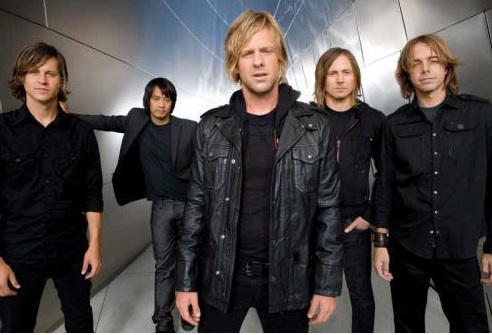Recently I was asked by an artist who was a Christian if he should be focusing on the Gospel music industry rather then the general pop market. I told him both and referred him to an article by a very close friend of ours that probably represents my views as close as anything I have seen published:
Though many are tempted to classify Switchfoot as a ‘Christian’ band, lead vocalist and guitarist Jon Foreman says he does not divide the sacred and the secular. “I think we like to put things in boxes. Crossword puzzles and Sudoku and parking spaces feel like progress. We like geometrical lines that can divide one thing from another. I don’t find many of those things in nature; it’s fluid and changing and the tides go in and out. The way I see people is like that,” says Jon. “We are all hurting human souls that desperately are looking for hope and meaning and purpose and truth and friendship and belonging. Some of us are looking at the bottom of a bottle or the bottom of a checkbook; we’re all looking to different things to satisfy these needs and longings.
For me, I don’t see delineations in the people around me – if anything that’s God’s job – my job is just to love people.” Jon acts as a prophetic voice of truth for today’s young people, a spiritual path that many millennials find controversial.
“I think of the church as my family and in that I am culpable, I am responsible, I am not outside of it. You go to a family reunion and there’s people of all sorts. There are people that have their doctorate degree and have their lives together and other folks that just got out of jail and we all sit at the family dinner and some people spout out crazy right wing stuff and other people are really liberal. Again, my job is to love these people. That’s my family. I love them. I have no choice. Some of them are nuts, and they probably think I’m nuts. The sooner I can realize my own imperfections and realize that people have been so patient and accommodating and gentle to me in my family and in the church, suddenly I’m able to do that for other people,” he says.
Jon’s lyrics spring from allowing pervasive hope to seep into his music, battling despair and cynicism. “Everyone has a message to communicate and I think especially in the current times that we’re in, it can be a bit daunting to say you have any ambition. Cynicism kind of puts out most fires that you might think of starting before they start. The fact is, I believe that every day you’re alive you change the world. Every act, every motion, sets other things in motion. If you cut someone off on the freeway, that changes the world. If you don’t get out of bed, that changes the world. Whatever you do, your choices have impact,” says Jon. “I make a conscious decision to be part of the creative story that’s unfolding rather than the destructive story. Hope and despair are not choiceless elements of our lives. They’re both responses to what we see every day. When you think about what’s going on, when you look overseas at wars, genocide, ISIS…you have every reason to despair. Even in our own borders, with Charleston and Ferguson, there’s a ton of reasons to give up hope but ultimately there’s also reasons to hope. There’s reasons to believe that we can sing those songs of hope.” He writes to search for understanding in our complicated world.
“Many times I create attempting to find some sort of riddle to the mysteries around me and oftentimes for me, the arts, especially music, hold the keys to these mysteries, whether it’s God or sex or politics or death. I think what I love about music is that you can dive deep and be really, really vulnerable and honest and sing that song in front of thousands of people, and it’s socially acceptable,” he says.

